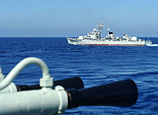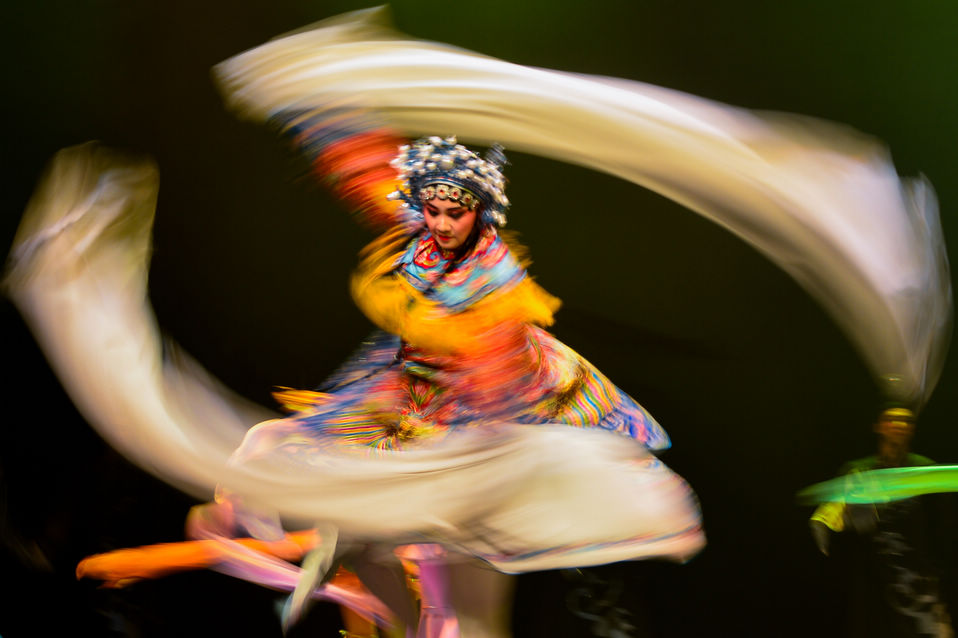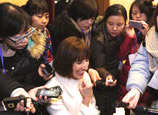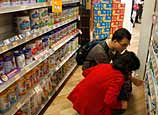
Fireworks may be banned on seriously polluted days in Beijing, a move experts said is designed to reduce smog during the Lunar New Year holiday.
The Beijing city government is considering including the ban in its emergency plan for serious air pollution, Kang Jiyong, secretary-general of the Beijing Fireworks Association, told Beijing News.
Cooperation with meteorological authorities is needed so that setting off fireworks can be banned on certain days, he said.
Fireworks and firecrackers can be legally sold in Beijing from Tuesday at 1,337 certified stores. The number of certified fireworks and firecracker stores was 1,429 last year, according to the Beijing Administration of Work Safety.
A possible fireworks ban ahead of Spring Festival, which falls on Feb 10 this year, has been anticipated by many experts since Beijing witnessed the worst period of smog for decades in January.
Compulsory measures will be taken when the pollution in Beijing reaches extremely serious levels, including suspending civil work at construction sites and cutting the use of government vehicles by 30 percent, according to the emergency plan that took effect in December.
Ma Jun, director of the Institute of Public and Environmental Affairs, said he supported the ban.
"The government can issue a 'firework index' during the Spring Festival holiday every day based on weather conditions, including wind forces, to determine whether to allow setting off fireworks or firecrackers," he said.
Pollutants produced by fireworks can be diminished quickly on windy days, which can cause little pollution, but they will cause or aggravate smog in unfavorable conditions, he said.
About 85 percent of people support banning fireworks when the weather is polluted, according to a poll of more than 1,700 people by popular writer Zheng Yuanjie on Sina Weibo.
"Fireworks are dangerous and can cause a lot of noise, in addition to scattered paper rubbish and air pollution," one netizen commented.
Setting off fireworks has prompted a lot of concern among the public recently, as the worst smog in decades shrouded many parts of China in January and aroused worry over the possible deteriorating air pollution during Spring Festival, traditionally the most important Chinese festival, when people set off fireworks and firecrackers to ward off evil and invite luck.
Many parts of central and eastern China suffered more than 20 smog days in January, the worst since 1961, according to the National Climate Center.
Beijing and its neighboring areas were hardest hit, with only five days in Beijing free from haze in January, weather authorities said.
The lack of cold air and continuous industrial emissions are the major cause of the prolonged smog, said Ma Xuekuan, chief forecaster for the National Meteorological Center.
Besides concern for air pollution, safety has also aroused call for stricter control of fireworks.
In a circular released last month, the State Administration of Work Safety called for intensified supervision of the manufacture, transport, sales, storage and use of fireworks during the Spring Festival holiday to ensure safety.
Zhang Chengdong, deputy director of Jiangsu Festivals and Events Association, said setting off fireworks during celebrations is a tradition for the Chinese that should be preserved, but illegal production poses the greatest danger to fireworks.
"There's no unified standard to regulate the manufacture of fireworks and firecrackers, so they have become more powerful year by year and pose more danger to the public," he said.
Ma at the Institute of Public and Environmental Affairs said management should be intensified in the manufacturing and distribution of fireworks.
"We always intensify inspection on the fireworks market around major holidays such as National Day and Spring Festival to ensure safety," said Bai Qiuyan, an official for Liaoning province's administration of work safety.
















 The journey is more important than the destination:Three people who opted for an adventure tell stories.
The journey is more important than the destination:Three people who opted for an adventure tell stories.


![]()
